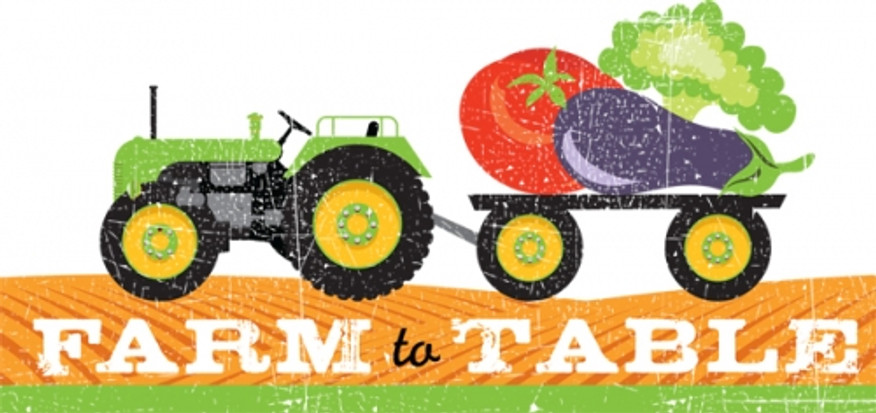Jun 27th 2016 - Guest
What exactly is the farm-to-table movement
Farm-to-Table Movement Improves Food and Health
The farm-to-table movement has its roots in healthy eating, but it also has a positive impact on the environment and the economy. Foods that are picked unripe and shipped long distances just don't have the same flavor as sun-ripened foods that are locally sourced. It's also a drain on the environment to have fleets of semi-trucks continually hauling food from one place to another. Finally, cutting out unnecessary middlemen allows the farmer to make a decent profit that offsets the investment and labor of growing and harvesting produce.

Good for Your Health
Have you noticed that fruits and vegetables purchased from a produce stand often taste better than the same offerings at the local grocery store? One reason is that bulk growers pick fruits and vegetables before they're completely ripe to make them easier to ship. This also makes the produce less likely to spoil on the way. Fruits and vegetables need energy from the sun in order to ripen with all of their natural sugars and vitamins intact. As soon as you pick them, the sugar starts turning to starch and the nutrients begin to degrade.
The more produce is handled, the greater the risk that it will end up contaminated with germs. If there's a problem with a particular shipment of grapes or lettuce, it may spread illness to different areas of the country or even the world before the issue is identified. Local produce is also more likely to be organically grown because it's planted in small batches that don't need the widespread application of fertilizers and pesticides.
Good for the Environment
The overuse of chemicals by factory farms pollutes the soil, and storm runoff contaminates nearby water sources. Local farmers are better stewards of the land because they care about the long-term sustainability of their fields. Another issue is that long-distance shipping requires the use of fossil fuels that continue to contribute to global warming. A third factor that puts stress on the environment is the overuse of cardboard, plastic, and other materials used for packaging.
Buying foods from local farms, farmers' markets, and agricultural co-ops means that there is less distance to haul it, and much less pollution-causing fuel is required. Produce also needs less packaging since it's not going very far, cutting down on the non-biodegradable materials that harm the earth's trees and oceans. Of course, eating locally grown produce also means you can't have grapes from Chile in the middle of the winter – a small price to pay to save the environment.

Good for the Local Economy
Many restaurants have embraced the farm-to-table philosophy because the food is fresher, tastes better and is cheaper than produce shipped long distances. In some places, farmers deliver directly to restaurants and other retailers, while some cities create a 'produce hub.' This is a location where farmers can drop off their latest harvest to be purchased by many different food service businesses.
Farmers' markets are good sources of revenue for farmers, and other local businesses benefit when they're nearby. Local farms spend money in the area on equipment and supplies, and the restaurants they serve provide employment opportunities. One recent trend is for chain supermarkets to set aside a section for locally grown foods. When supermarkets don't rely entirely on large corporate farms for produce, it puts money in the pockets of local farmers.
Farm-to-Table Philosophy
In the United States, the farm-to-table movement started in California and Oregon in the 1970's. The restaurant Chez Panisse in Berkeley, California opened in 1971 and is recognized as the first restaurant to serve only food from small, local farms. As time passed, the many benefits of locally sourced food become apparent, and the movement spread.
The nutritional quality of freshly picked local produce is far better than that of fruits and vegetables that have been shipped across the country or even the world. For years, doctors have agreed that locally grown, organic foods promote good health. The concern over factory farming, genetically modified foods, pesticides and soil/water pollution has fueled many peoples' enthusiasm for the locally grown movement. Restaurants have followed this trend because fresh, locally grown food is not only better for people and the environment, but it's also delicious!

